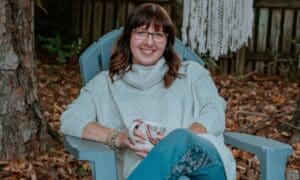The call was to “End Human Trafficking Now.” The call came at a Feb. 1 symposium held at Cornerstone United Methodist Church in east Coweta County. Sponsored by the Rotary clubs in Fayette and Coweta counties, the thrust of the meeting was to identify the great bulk of human trafficking for what it is — sexual slavery.
Some in the communities spanning Fayette and Coweta counties might be surprised to learn that human trafficking is a problem not only in America, but in Georgia, in metro Atlanta and in affluent areas. More than 200 residents of Fayette and Coweta counties attending the symposium got that message loud and clear from panel members who pulled no punches.
The “End Human Trafficking Now” panel featured Ga. Attorney General Sam Olens, Assistant U.S. Attorney Susan Coppedge, Wellspring Living representative Mary Frances Bowley, Ga. Bureau of Investigation representative Brian Johnston and U.S. Immigration and Customs Enforcement (ICE) representative Alia El-Sawi.
Symposium organizers in noting the extent of human trafficking said 100,000 American children, both boys and girls with an average age of 12-14, are trafficked each year.
Olens said too often those “purchasing” the victims of human trafficking are allowed to pay a fine or leave the scene early and face misdemeanor charges.
“The big issue facing cops, investigators and judges is that misdemeanor charges are no longer appropriate. The majority of kids we’re seeing are runaways from foster homes or those in DFCS (Dept. of Family and Children’s Services) custody. These are our kids,” Olens said emphatically.
Though laws have been strengthened, there exists the need to go after the demand for sex with human trafficking victims, Olens said.
“We need everybody’s help to see when something is wrong,” said Olens. ”Like when you see a guy walking into a hotel with young girls wearing makeup. You have an obligation to act and call 911.”
Johnston in his remarks noted the GBI’s task force efforts to combat sex trafficking.
“Traffickers have turned to the Internet,” Johnston said. “The Internet is one of the methods of trafficking and it’s a way to identify traffickers.”
For those who believe sex trafficking is found only in large cities such as Atlanta, Johnston quickly dispelled that myth by telling attendees that trafficking is also found in smaller cities and rural areas with large truck stops.
Painting a perhaps unexpected picture of the reality of sexual slavery, Johnston said, “It happens more in affluent areas than in poor areas.”
Citing an example of trafficking that involved parents, Olens relayed the story of the parents of a young girl who repeatedly took the child to the owner of a used car lot.
“This is not limited to Atlanta and it’s not limited to urban areas. It’s all over,” said Olens, citing another example of a Texas man who flew into Atlanta to have sex with a 9-year-old girl. “The problem is epidemic.”
Coppedge in her remarks centered on some of the human trafficking cases her office had prosecuted and the changes in the law that have made sentences for trafficking more stringent. Federal and state laws have changed and the judges have changed, Coppedge noted, adding that those changes have not put an end to human trafficking.
“Traffickers look for kids they can mold and manipulate,” Coppedge said.
El-Sawi during her comments on ICE investigations of human trafficking said those include both U.S. citizens and those born outside the United States. Those investigations hit very close to home, she said.
“In Atlanta, we’re seeing (both) U.S. girls and those brought here found in sexual servitude,” El-Sawi said. “It’s happening in our back yards.”
The Tyrone-based Wellspring Living organization works with victims of childhood sexual abuse and exploitation. Bowley in her comments related the personal stories of two females, one age 15 and the other age 21, who were victims of trafficking.
“We tend to generalize who these people are,” Bowley said of trafficking victims. “In almost every case there is a marker of sexual abuse during childhood. Most have had abortions by the time they come to us. And most first-time sexual abuse was with someone they know.”
Once enslaved, it is not a matter of just walking away from traffickers due to circumstances such as physical and mental coercion, Bowley explained.
“The hardest thing is to build trust with kids who were trafficked,” Bowley said. “Trafficking affects the ability to reason. And therapy often doesn’t work initially.”
The symposium was co-hosted by the Coweta-Fayette, Newnan, Peachtree City, Fayette Daybreak and Fayetteville Rotary clubs.












Leave a Comment
You must be logged in to post a comment.